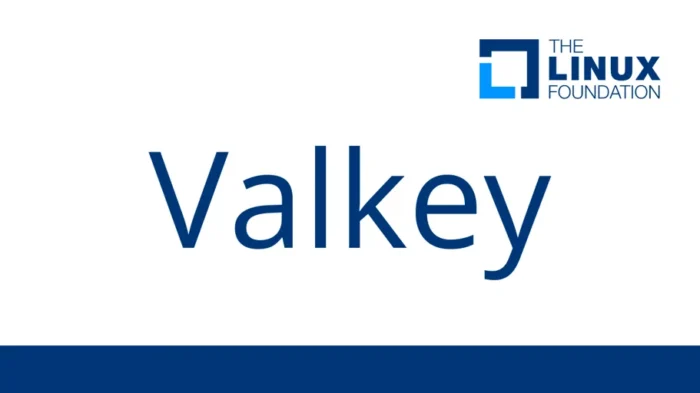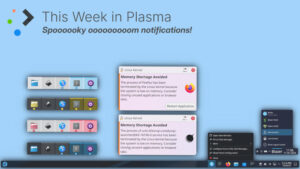Another fork of Redis has arrived, and this one might end up making the Redis suits wish they had never even considered abandoning open-source. It has the support of The Linux Foundation, big tech, and many of the project’s long-time contributors.

There’s a new fork of Redis, this one bearing the flag of the Linux Foundation.
Yesterday we told you that SourceHut, the open-source GitHub alternative, had forked the latest and last open-source version of Redis’s in-memory data store into a project called Redict, with plans for continued development as well as a call for interested contributors.
Today there’s even better news. The Linux Foundation has announced its intent to form Valkey as its own Redis alternative. This project was quickly put together by Redis contributors, who gathered maintainer, community, and corporate support to reboot-as-open, in response to Redis’s recent announcement to move the software from open-source to proprietary “source-available” licensing. Valkey will continue to use the BSD 3-clause license that has, until now, always covered Redis’s open-source software.
This assures individual developers who have contributed to Redis over the years that their work will continue to be available as open-source software that is still being maintained and actively developed. It also assures users that the Redis platform will continue to be available under legitimate open-source licensing.
“I worked on open-source Redis for six years, including four years as one of the core team members that drove Redis open-source until 7.2,” Madelyn Olson, a co-creator of Valkey, a former Redis maintainer, and a principal engineer at AWS said. “I care deeply about open-source software, and want to keep contributing. By forming Valkey, contributors can pick up where we left off and continue to contribute to a vibrant open-source community.”
Redis’s Move to Fauxpen
If you’re just joining the soap opera, last week Redis announced that it was moving from offering its NoSQL in-memory database software under the open-source BSD 3-clause license to a users’ choice of two proprietary freeware source-available licenses: the Redis Source Available License and the Server Side Public License. While both of these licenses are patterned from open-source templates, both come with restrictions that would keep them from qualifying for approval from Open Source Initiative, which is considered necessary for a license to officially be considered “open-source.”
For the RSALv2, the restriction is that it forbids the software to be used in a software as a service setting. The SSPL, which was introduced by MongoDB several years back, and which has already failed to get OSI’s approval, requires anyone offering it as SaaS to make public the source code of all the support software being used to drive the service.
After Redis announced the license change last week, Redis CEO Rowan Trollope told TechCrunch, “I wouldn’t be surprised if Amazon sponsors a fork.”
If that was a prediction, it’s now come true. According to the Linux Foundation, Valkey project supporters indeed includes Amazon Web Services, along with Google Cloud, Oracle, Ericsson, and Snap Inc.
“Open-source Redis is one of today’s most popular databases, and that success has been driven in large part by its active, thriving community of contributors,” Jeff Carter, VP of relational databases at AWS said in a statement. “Through the creation of Valkey, many of the former maintainers that contributed to open-source Redis are helping keep the project open for everyone, and the industry can further support them so the project can continue to evolve and improve for our customers and the community at large. We are excited to see the groundswell of support from both the community and a range of companies that all share our vision that the best way to maintain this vibrant project is through open-source governance, with contributions from all.”
From where I sit, I’m seeing this as a shot across the bow of companies such as Redis (and HashiCorp, MongoDB, Elastic, and others) that built their reputation on open-source before pulling a switcheroo to some sort of proprietary license that’s “just as good as open-source.” I’m also hoping — almost expecting — this to throw a big enough monkey wrench into Redis’s plans to make them rue the day they switched from open to fauxpen.
Valkey Going Forward
In many ways, Valkey’s future looks much like what Redis had already planned for the software before it abandoned open-source. The community will continue working on the existing roadmap, which includes new features such as a more reliable slot migration, dramatic scalability and stability improvements to the clustering system, multi-threaded performance improvements, triggers, new commands, vector search support, and more. It will also continue to support Linux, macOS OpenBSD, NetBSD, and FreeBSD.
Like all Linux Foundation projects, the Valkey project will follow an open governance model, and organizers say it will remain community-driven and welcoming of all users and contributors. The project has already put together a technical leadership committee of several former Redis contributors, and hundreds more community members have voiced an intent to support Valkey.
The project also already has a presence on GitHub of course…, because ya gotta park your forked code somewhere.
“Valkey is a fully open-source successor built by long standing Redis contributors and maintainers,” said Chris Aniszczyk, CTO at the Linux Foundation. “Fostering open collaboration that benefits all and not just a single organization is critical in building long term, sustainable open-source communities. Also, having this project in the hands of a foundation, rather than a single company, means Valkey will be community-driven without surprise license changes that break trust and disrupt a level open-source playing field.”
Christine Hall has been a journalist since 1971. In 2001, she began writing a weekly consumer computer column and started covering Linux and FOSS in 2002 after making the switch to GNU/Linux. Follow her on Twitter: @BrideOfLinux











